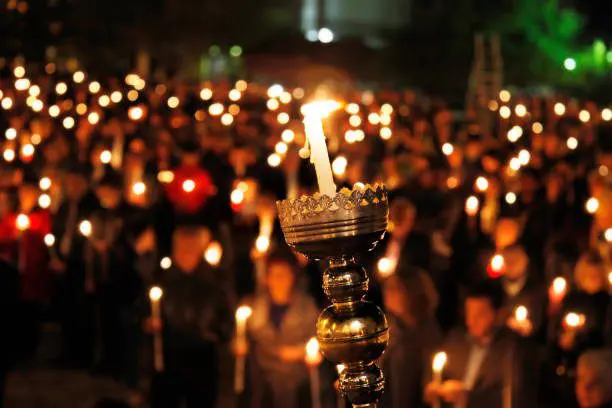The majority of Orthodox Christians in Eastern Europe say that women have a responsibility to society to have children, although Orthodox Christians in the former Soviet republics are slightly less likely than those in other European countries with a large Orthodox majority to maintain this view.
This is clear from a new study by the American Pew Research Center on the attitudes of Orthodox Christians in Eastern European countries and former Soviet republics.
Fewer Orthodox in the region – although they still have significant shares in most countries – say that the wife should always obey her husband, or that when jobs are scarce, men should have more rights to work than women. And even less do they point out that the ideal marriage is one in which the husband earns money and the wife takes care of the children and the home.
In general, Orthodox Christians in Romania tend to have more traditional views on gender roles than Orthodox Christians in other parts of Eastern Europe. Approximately two-thirds or more state that women owe it to society to have children, that wives should obey their husbands, and that men should have more rights to work than women in times of high unemployment.
For Bulgaria, the data are as follows: 76 percent of respondents believe that women have a responsibility to society to have children. When asked whether a wife should always obey her husband, only 22 percent of Bulgarians answered in the affirmative, which is the lowest level of all countries in which the survey was conducted (Bulgaria, Serbia, Greece, Romania, Bosnia, Russia, Armenia, Georgia, Moldova, Ukraine, Belarus, Estonia, Latvia, Kazakhstan.) By comparison, in Romania, as many as 72 percent of Orthodox believe that a wife should always obey her husband.
When asked whether men should have more rights than women in terms of jobs when there is high unemployment, Bulgaria again occupies one of the lowest levels, with only 26 percent agreeing that men should have an advantage over women in this regard. Here, too, Romanians are the most conservative, with as many as 66 per cent believing that men should have more rights than women.
When asked whether the ideal marriage is one in which the husband earns money and the wife takes care of the children and the home, Bulgaria is again in first place on all sides in terms of negative answers, with only 15 percent answering this question in the affirmative. Here, however, no sharp amplitudes are observed, and in other countries the vast majority of respondents answered in the negative. Most, 32 percent, responded positively in Armenia, followed by Ukraine with 31 percent.
Orthodox women support women’s rights more than men. In most countries, women are less likely than men to agree that a wife should obey her husband. And in several countries, women are less likely than men to agree that men have greater employment rights than women, especially when jobs are scarce.
But women are no longer always supportive of liberal positions on gender roles. In most of the countries surveyed, women are almost as likely as men to agree that they have a social responsibility to have children. Women, on an equal footing with men, are also likely to agree that a traditional marriage, in which women are primarily responsible for household chores while men earn money, is ideal.
With regard to environmental and climate issues, as well as homosexuality, Orthodox Christians are largely united in their views. Most Eastern Orthodox Christians support the protection of the environment, even at the expense of economic growth. And the vast majority of Orthodox Christians point out that homosexuality should not be encouraged by society, with Greece being an exception.
Bulgaria is in second place after Greece. While in Greece only 45 per cent of those polled said society should not accept and encourage homosexuality, in Bulgaria 59 per cent said so. In Armenia, they are most adamant – 98 percent are against homosexuality being accepted by society.
Orthodox Christians are divided on other issues. When it comes to whether abortion should be legal, for example, many countries have mixed views, with the former Soviet republics expressing greater opposition to legalizing abortion than those in other countries.
In Bulgaria, Orthodox Christians are the most liberal of all countries on this issue – only 14 percent of respondents have called for a ban on abortion.
Regarding same-sex marriages, in all surveyed countries the Orthodox oppose them en masse, and in Bulgaria 78 percent have declared themselves against them. Armenians are the most conservative on this issue as well – 96 percent are against them.







